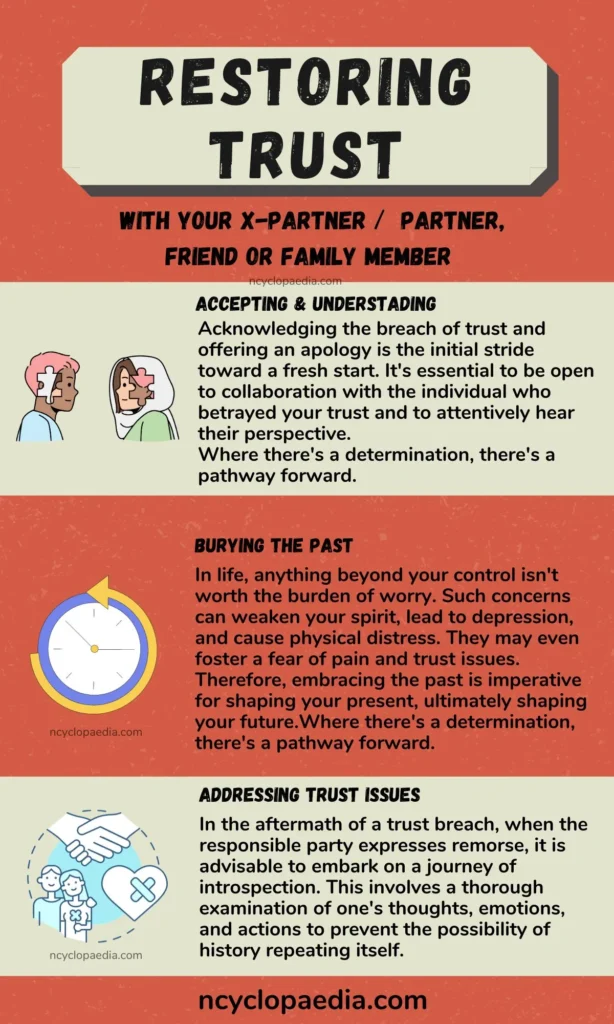Rediscovering the ability to trust after experiencing heartbreak can be a challenging journey. It takes immense courage to open oneself up to vulnerability and the potential for both happiness and pain once more.
Although trusting another person may initially seem daunting, the potential rewards are well worth it. Choosing not to trust again may mean missing out on numerous opportunities for new and meaningful friendships and relationships, which would be a true shame.
Trust is a delicate concept that can take a long time to nurture but can be shattered by a single misstep. Often, the swiftest lessons in life come from moments of pain and suffering, which can make regaining trust a formidable task.
Fear of being hurt again can lead us to stay within our comfort zones, avoiding the risks associated with vulnerability. This article focuses on our role in shaping our own happiness rather than those who may have hurt us, intentionally or unintentionally.
Rebuilding Trust After Heartbreak
Placing trust in someone who has hurt us or in a new acquaintance may appear challenging, but it’s as difficult as we make it out to be.
The more we tell ourselves, “I can’t trust again; I can’t risk being vulnerable,” the deeper emotional wounds we create. These wounds can lead to superficial relationships.
Each time we reinforce the belief that pain should be avoided at all costs, we convince ourselves that we cannot trust anyone again. If we persist in this mindset, we may engrave in our minds the idea that trusting others is synonymous with getting hurt. Eventually, this belief becomes a permanent part of us.

This can result in an inability to trust others and even ourselves, leading to deep-seated insecurities that we may not recognize until we push away people who try to get close to us.
Life without trust in others can be a lonely and solitary experience, as human nature thrives on bonding.
Trusting Equals Happiness
While trust is not an absolute necessity for survival, it significantly enhances our lives. Relying on others for emotional, physical, and mental support provides a sense of significance and belonging.
Studies reveal that individuals who experience loneliness are more prone to depression and other mental health issues compared to those surrounded by trusted friends.
Functional relationships often require trust, and without it, they can falter.
Overcoming the Fear of Trust
Trusting others makes us vulnerable, but it is also an essential part of our humanity. Without trust, healthy relationships become mere acquaintanceships, driven solely by convenience.
Strong relationships are built on a foundation of trust and respect, fostering emotional sharing and acceptance.

Can I Still Be Responsible for My Emotions After Betrayal?
Experiencing betrayal, cheating, or mistreatment can be emotionally devastating. However, the pain we feel is not a punishment for our own actions.
It’s crucial to remember that, regardless of the actions of our ex-partner, we are responsible for our own emotions. While they may have triggered our pain, we have the power to heal and move forward.
Is It Possible to Rebuild Trust After It’s Been Shattered?
Rebuilding trust, especially after an incident like cheating, is possible but requires time, effort, and commitment from both parties involved.
Couples who have experienced betrayal can work on rebuilding trust by communicating openly and honestly, addressing questions and concerns, and providing reassurance over an extended period.
Here are some approaches to learning to trust again:
Trusting Someone Again by Trusting Yourself
In order to rebuild trust, it’s essential to embrace vulnerability and get close to another person. Building walls to protect ourselves from potential pain can hinder intimacy and trust in new relationships.